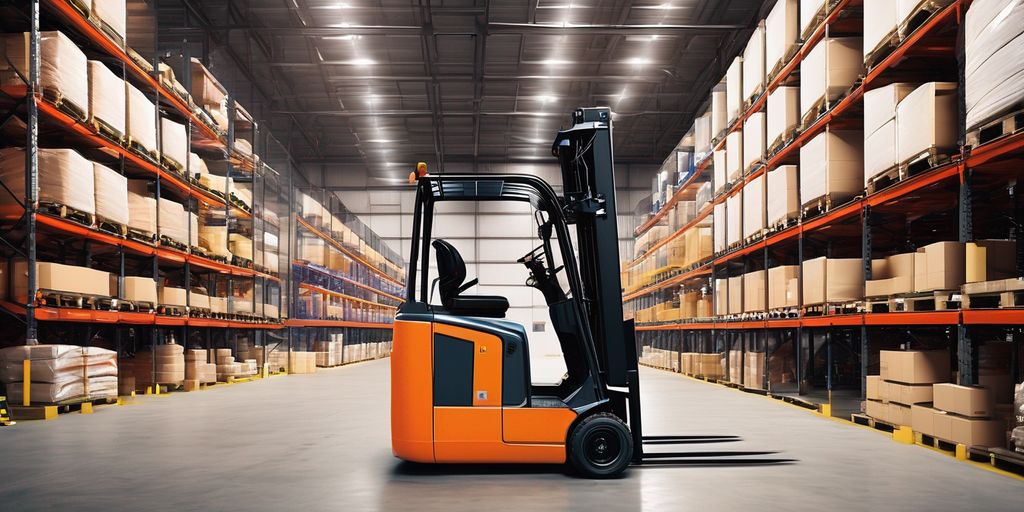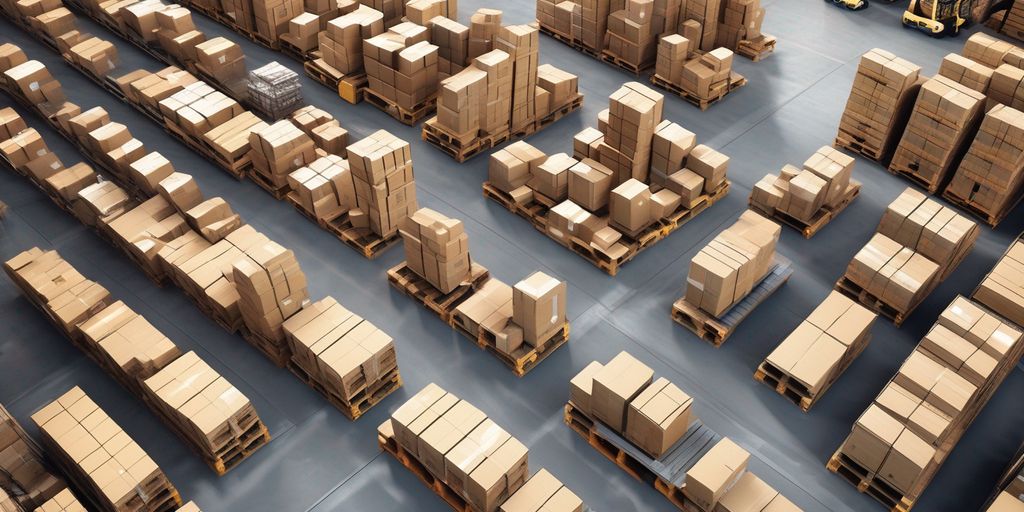Forklifts are essential for many businesses, helping to move heavy items quickly and efficiently. But just like any other equipment, they need proper maintenance to keep running smoothly. One of the most important parts of a forklift is its battery. Knowing when to replace a forklift battery can save you from unexpected downtime and expensive repairs. Here are the top five signs that your forklift batteries might need to be replaced.
Key Takeaways
- If your forklift moves slower than usual, it could be due to an old battery that can't hold a charge well.
- Batteries that take a long time to charge might be nearing the end of their life span.
- If your battery drains quickly after charging, it may be time for a replacement.
- Sulfation, or the buildup of lead sulfate crystals, can indicate a failing battery.
- Visible acid or corrosion on the battery is a clear sign that it needs to be replaced.
1. Slower Lift and Travel Speeds
When your forklift starts to show slower lift and travel speeds, it might be time to check the battery. This is often one of the first signs that your battery is aging or not being maintained properly. As the battery discharges, its power output drops, causing the forklift to move and lift more slowly.
- Initial High Power: When fully charged, a healthy battery provides high power output.
- Power Drop: Over a shift, the power output decreases, but an old or poorly maintained battery starts at a lower power and drops faster.
If you notice your forklift is sluggish, it could be due to a battery issue. Regular maintenance and timely replacement are crucial to prevent unexpected downtime and ensure efficiency.
2. Slow Charge
When your forklift batteries start taking longer to charge, it's a clear sign that something is wrong. Slow charging often indicates internal issues within the battery that may need attention or even replacement.
- Longer Charging Times: If your batteries are taking much longer than usual to reach a full charge, it could be due to internal degradation.
- Frequent Charging: Needing to charge your batteries more often can also be a sign of slow charging issues.
Slow charging not only affects your forklift's efficiency but can also lead to unexpected downtime, impacting your overall productivity.
Regular maintenance and proper charging techniques are essential to avoid these issues. Always ensure that your charging equipment is in good condition and suitable for your battery type.
3. Fast Power Drain

If your forklift battery drains very quickly, it may be a sign that it is not holding a charge like it used to. This is a warning that the chemical reactions inside the battery are not happening as they should. To optimize battery life, do not completely drain them during usage. Letting them get no lower than about 20 percent of total capacity will prolong their ability to retain a charge.
4. Sulfation

Sulfation is a common issue in lead-acid forklift batteries. It happens when sulfuric acid in the battery reacts with the lead plates, forming lead sulfate crystals. These crystals can harden and reduce the battery's capacity to hold a charge.
If you notice that your forklift battery is taking longer to charge or is losing power quickly, sulfation might be the culprit. Over time, the water in the battery evaporates, and if not replaced, the sulfuric acid can collect on the plates, leading to sulfation. This can cause the battery to lose cranking power and take longer to charge.
To prevent sulfation, it's important to follow a proper charging regimen. Make sure to fully charge the battery after each use and regularly check the water levels. If the sulfation is too severe, it might be best to replace the battery rather than attempt a repair.
Regular maintenance and proper charging can help extend the life of your forklift battery and prevent issues like sulfation. If you notice any signs of sulfation, it's best to consult a professional for advice on whether to repair or replace the battery.
5. Acid or Corrosion

Visible signs like acid collection or corrosion on battery terminals indicate serious issues. These problems can stem from a loose seal, overfilling, or even cracks in the battery.
- Safety Hazard: Battery acid is dangerous and should be handled with care. Always wear protective gear when dealing with it.
- Corrosion: Corrosion, often seen as blue or white powdery substances, can prevent the battery from charging properly and supplying power efficiently.
If you notice these signs, it's best to consult a professional for repair or replacement. Attempting to fix these issues yourself can be risky and may lead to further damage.
Regular maintenance and proper charging can help prevent these issues, ensuring your forklift operates smoothly and safely.
Conclusion
Recognizing the signs that your forklift batteries need replacement is crucial for maintaining efficient operations and ensuring safety. If you notice slower lift speeds, longer charging times, or visible corrosion, it's time to take action. By staying vigilant and addressing these issues promptly, you can avoid unexpected downtime and keep your forklift running smoothly. Remember, a well-maintained battery not only extends the life of your forklift but also enhances productivity and safety in your workplace. So, keep an eye out for these signs and replace your forklift batteries when needed.
Frequently Asked Questions
How long do forklift batteries usually last?
Forklift batteries typically last around 5 years or 1,500 charge cycles. However, their lifespan can vary based on usage and maintenance.
What causes a forklift battery to charge slowly?
Slow charging is often a sign of internal problems within the battery. It can indicate that the battery is nearing the end of its life and may need to be replaced.
Why does my forklift battery drain so quickly?
A fast-draining battery usually means it can no longer hold a charge well. This can happen when the internal chemicals in the battery aren't reacting properly.
What is sulfation in a forklift battery?
Sulfation occurs when sulfuric acid in the battery forms crystals on the battery's plates. This can reduce the battery's ability to hold a charge and may eventually damage it.
Is it dangerous to have acid or corrosion on a forklift battery?
Yes, acid and corrosion can be hazardous. They can cause damage to the battery and are a safety risk to anyone handling it. Always use protective gear when dealing with battery acid or corrosion.
Can I fix a forklift battery that has visible corrosion?
Sometimes, visible corrosion can be cleaned, but it's best to have a professional inspect it. Corrosion can indicate deeper issues that might require a battery replacement.




Leave a comment
This site is protected by hCaptcha and the hCaptcha Privacy Policy and Terms of Service apply.